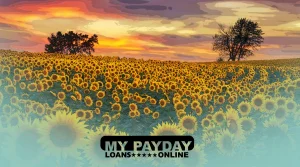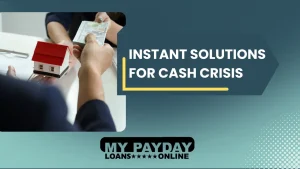
Payday Loans Near Me
Are you caught in a financial squeeze between your monthly paychecks? You’re not the only one who is facing the same issue. The gap between the present and next paycheck feels like an eternity during emergency situations like medical bills, car repair, or other urgent needs. Even though many of us opt for traditional loans, they are not an ideal option because of their lengthy approval processes and strict requirements. Payday loans have emerged as the accessible alternative for the borrowers seeking immediate financial relief. Let’s begin our journey by understanding about payday loans.
What are Payday Loans?
Payday loans are short-term loans that are designed to provide immediate cash access to individuals suffering from financial restraints. The 1-hour payday loans are typically smaller in amount. The amount usually ranges from $100 to $1000 and they must be repaid on your next payday. These loans are mainly used for covering expenses like rent, utility bills, or emergency repairs.
Unlike traditional loans, borrowers can easily qualify for the payday loans. Moreover, the loans are quickly processed, mostly on the very same day they are applied. There are instances where most lenders don’t require a high credit score. That’s why they are an accessible option for most of the borrowers.
Let’s discuss the various benefits of payday loans near you.
Benefits of Payday Loans Near You
When you are facing a financial crunch, finding the payday loan lender near you becomes a necessity. That’s when My Payday Loans Online made the whole difference. The benefits borrowers can enjoy while borrowing from us are:
1. Quick Access to Cash
It is one of the biggest benefits that separates us from other lenders. We offer the same-day or next-day funding. It means that you don’t have to wait for long for the funds to be credited in your account. It is really important during the situation when the time is of essence.
2. Minimal Requirements
Applying for payday loans typically has minimum requirements. All that is required is proof of income, an active bank account, and a valid identity proof. You can qualify for the payday loan even if you have less than the perfect credit score. The main focus of the lender is the repayment ability of the borrower once their next paycheck arrives.
3. Convenient Locations
Our application process is totally online. The user can apply for the loan at the comfort of their home. All that is required is a stable internet connection and the borrower must keep all their documents ready to ensure immediate approval of the application.
4. No Credit Checks
Compared to traditional loans where lenders conduct credit checks, lenders offering payday loans don’t opt for credit check. It is a boon for the borrowers having poor or no credit history. They can easily qualify for the loan and their credit score won’t be impacted.
5. Flexibility in Use
Payday loans can be utilized for multiple purposes. Unlike personal loans where the borrower is bound to use the loan amount for a specific purpose, payday loans provide the much needed flexibility to allow the borrower to use the loan amount as per their requirements. Whether you need to cover an emergency car repair or pay off an emergency medical bill, payday loans are your ideal option.
What To Expect When Applying For Payday Loans Online
Applying for a payday loan is a simple and straightforward process and the borrower won’t face any difficulty while applying for them. Here’s what they can expect:
1. Submit Your Application
The very first step a borrower must do is to fill the online loan application. They must provide and fill in their basic information like proof of income, basic personal information, and bank account details. Our team will instantly verify the details mentioned in the application and if it meets our criteria, they will approve it. The loan amount will be disbursed in the bank account on the very same day.
2. Review The Loan Terms
Our team will share a document stating the terms and conditions related to the loan. Make sure to carefully review the terms and conditions before accepting the loan offer. Payday loans typically come with high fees and interest rates, so the borrower must be aware of the total amount they have to submit. Be sure to ask about the late payment penalties, additional fees, or loan extensions to ensure that everything is clear between both parties.
3. Receive The Funds
Once the loan application is approved, we will deposit the loan amount directly in your bank account on the very same day or next business hours. Our team makes conscious efforts to deposit the amount within 24 hours to ensure you have immediate access to the required funds.
4. Repayment
You are expected to repay the payday loan when your next paycheck arrives. The repayment period typically varies from two weeks to one month after the loan amount is deposited in your account. When the due date arrives, our team will automatically deduct the loan amount along with the interest fees from your bank account. You must ensure that you have sufficient funds in your account to ensure there are no issues during repayment.
Apply Today
When you’re plagued by financial emergencies and you need quick access to cash, our payday loans serve as a convenient solution for you. You can make an informed decision by understanding the associated benefits, application process, and costs, to responsibly manage your financial needs.
Connect with our team today if you are searching for reliable payday loans near you as we will connect you with the trusted lenders in your area. Our motive is to make it easy for you to find the right loan for your situation. Apply today and get the financial support you need, when you need it the most!!
Frequently Asked Questions
APR (Annual Percentage Rate) is the yearly cost you pay for borrowing a loan. Read more about what an APR is
Yes, some loans allow prepayments and that reduces the principal amount faster. In turn, your interest is also reduced.
It depends on the lender. They can decide how many loans you have with them simultaneously. Lenders also cap the total amount you can take through their loans collectively.
Yes, if there is no prepayment penalty mentioned in your loan terms, you can make early payments. It will allow you to avoid extra interest charged on your loan.
Absolutely! In fact the easiest and most proven way to build your credit score is by taking out a loan. When you make the payments on time, you’re signaling the lenders of creditworthiness. This pushes up your score.




